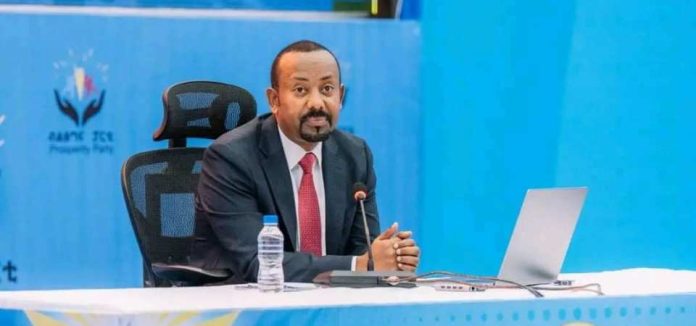Facebook Twitter (X) Instagram Somali Magazine - People's Magazine
In a recent address to the parliament of Ethiopia, Prime Minister Abiy Ahmed emphasized his country’s commitment to achieving access to the Red Sea through peaceful means. This declaration comes amid rising tensions between Ethiopia and Somalia following Ethiopia’s controversial agreement with Somaliland regarding port access.
A Call for Peaceful Resolution by Ethiopia
During a parliamentary session, Prime Minister Abiy stated, “Let the world hear today, Ethiopia maintains a clear national interest — it needs Red Sea access through peaceful means.” He underscored that if current efforts do not succeed, future generations would continue the pursuit. The Prime Minister’s comments reflect Ethiopia’s desire for a diplomatic approach to resolving the ongoing conflict over maritime access.
The Controversial MOU between Ethiopia and Somaliland
Ethiopia and Somaliland entered into a Memorandum of Understanding (MOU) in January 2024, allowing Ethiopia to use a Somaliland port. This move has sparked a significant diplomatic dispute with Somalia, which views the agreement as a violation of its sovereignty. Somaliland officials have indicated that the MOU could lead to the region’s recognition by Ethiopia in exchange for leasing approximately 20 kilometers of coastline.
Somali Prime Minister Hamza Abdi Barre expressed concerns at the United Nations General Assembly last month, labeling Ethiopia’s actions as a “serious threat” to Somalia. He argued that while Somali ports have historically been open to Ethiopian commerce, Ethiopia’s motives appear to extend beyond legitimate trade interests.
Ethiopia Denies Annexation Intentions
In response to accusations of territorial ambitions, Prime Minister Abiy clarified that Ethiopia’s agreement with Somaliland does not indicate an intent to annex Somali territory. “When we signed the MOU with Somaliland, we requested a 99-year lease, but they didn’t agree, and we signed a 50-year lease agreement,” he explained, questioning how a 50-year lease could constitute annexation.
Abiy emphasized that Ethiopia has no hidden agenda regarding its relationship with Somalia, asserting, “Ethiopia is a country which has the second-largest Somali population in the world next to Somalia. They are our brothers.” He reiterated Ethiopia’s role in supporting the Somali government against Islamist extremism.
Diplomatic Tensions Rise
The ongoing dispute has led to heightened diplomatic tensions, as evidenced by Somalia’s recent expulsion of an Ethiopian diplomat. Somalia accused Ali Mohamed Adan, a counselor at Ethiopia’s embassy in Mogadishu, of engaging in “activities incompatible with his diplomatic role.” The Somali government stated that these actions violated the Vienna Convention on Diplomatic Relations, though specifics were not disclosed.
Prime Minister Abiy did not address the diplomat’s expulsion during his parliamentary remarks, maintaining focus on Ethiopia’s broader diplomatic objectives.
The current diplomatic rift between Ethiopia and Somalia highlights the complexities of regional politics in the Horn of Africa. As both nations navigate their interests in maritime access and territorial integrity, the call for peaceful dialogue remains paramount to prevent further escalation and foster cooperation.

